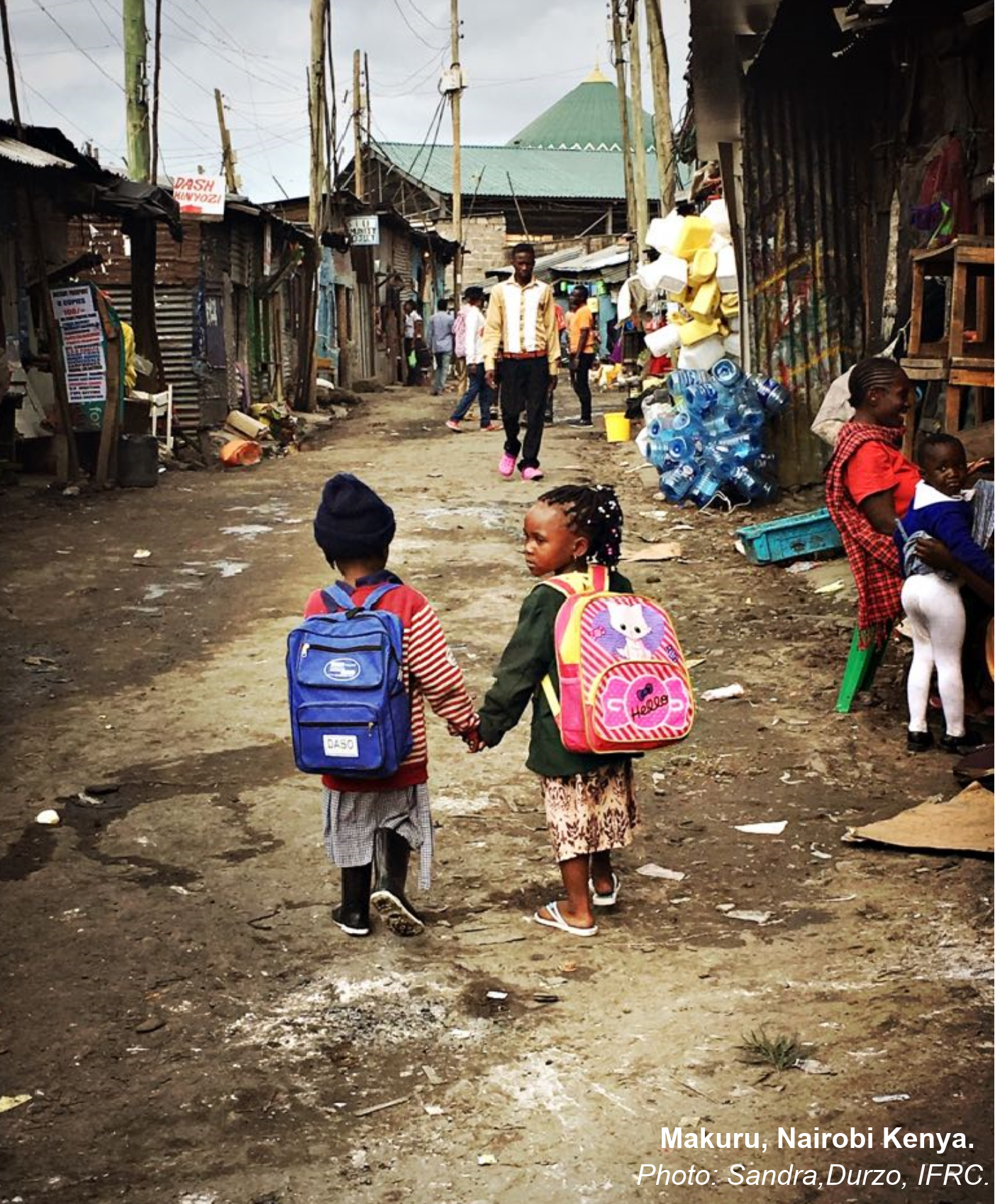Red Cross Red Crescent Urban Collaboration Platform
IFRC URBAN TOOLKITS
- Urban Action Kit (in 12 languages)
- GDPC City-wide Resilience Assessment
- GDPC Coalition Building for community resilience
- Co-designing Solutions for Urban Community Resilience
- GAUC Urban Profiling For Better Response to Humanitarian Crises
- Heatwave Guide for Cities
JOIN US FOR THE HEAT ACTION DAY JUNE 2 2024.
The International Federation of Red Cross Red Crescent Secretariat (IFRC) and the American Red Cross have been leading an Urban Collaboration Platform (UCP) since early 2016, with strong support from increasing number of National Societies, the Global Disaster Preparedness Center and the Red Cross Red Crescent Climate Center. The Urban Collaboration Platform (UCP) aims to help Red Cross Red Crescent National Societies to be better informed, better connected and better engaged in understanding and working in urban context. Helping urban communities become more resilient will make a significant contribution to the IFRC initiative One Billion Coalition (1BC).

We are implementing The Coastal City Resilience and Extreme Heat Action Project (CoCHAP) in nine cities in Indonesia, Bangladesh, Tanzania and Honduras. COCHAP aims to build climate resilience of urban communities, particularly to extreme heat and coastal threats. and strengthen the capacities of the communities, Red Cross and Red Crescent (RCRC) National Societies, city authorities, meteorological agencies and other stakeholders in system and design thinking, coalition building and evidence-based collective action.
COCHAP builds on the experience we gained from the first Coastal Cities Resilience Project implemented in Indonesia, Vanuatu and Myanmar. Find out more here. You can read more about the learnings from this experience here.
Previously, there have been other important initiatives within the Red Cross Red Crescent building up to the UCP. The Global Disaster Preparedness Center (GDPC) has conducted Urban Risk Dialogs and organized a series of workshops in Bangkok, Panama, and Arusha in 2013 - 2014. These workshops while highlighting existing challenges, set a vision for urban resilience for RCRC National Societies. The final report explores the feasibility for scaling up efforts on community resilience in cities globally. IFRC Asia Pacific Zone conducted a Scoping Study on Urban Resilience for Red Cross/Red Cresent National Societies.
The Iranian Red Crescent Society (IRCS) in cooperation with the IFRC has implemented a Urban DRR initiative in five cities (Jakarta, Yerevan, Tegucigalpa, Nairobi, and Tehran) leading to the International Seminar on Urban Disaster Risk Reduction and Management in Tehran, 3-7 May 2015. In 2012, the IFRC Asia Pacific (AP) region has completed a strategic direction study to explore the niche of Red Cross Red Crescent in urban settings in the Asia Pacific region.
IFRC STRATEGY 2030 AND FUTURE OF URBAN
In preparation for the IFRC Strategy 2030, nine themes and trasformations have been identified as the signals of change globally. While many of these trends are relevant to urban areas, there are some specific trends that are shaping the future of cities. Find out more here.
LEARNING AND SHARING WORKSHOPS
UCP organizes annual workshops to facilitate the exchange of information and experience among National Societies. The first workshop that focused on Urban Assessment was hosted by the Danish Red Cross in Copenhagen on 20-21 June 2016. The second workshop was hosted by the Norwegian Red Cross in Oslo on 18-20 May 2017 that sought to strengthen the collaboration process and advance the RCRC knowledge and practical skills in urban disasters and crises. Building on this momentum and in cooperation with Kenya Red Cross, the third workshop was organized in Nairobi on 4-6 June 2018. The recent urban collaboration workshop was organized in Beirut hosted by the Lebanon Red Cross on July 11-13, 2019.
WEBINARS
In the last years, the Urban Collaboration Platform has hosted webinars to present experiences, and how to build resilience in urban communities. Access to the following recorded webinars here.
Topics:
- Rethinking Urban Community Risk Reduction and Resilience while responding to COVID-19
- The Coalition Building process for Urban Resilience
- Heatwaves in cities
- Nature-based solutions for urban resilience
- Urban migration and climate change
- Community Waste Management in Jakarta, Indonesia
- Role of Informal Governance Systems in Cities
- Role of public spaces in informal settlements in building community resilience and cohesion
- Water Sanitation and Hygiene in urban areas
GLOBAL ENGAGEMENT
The UCP has been coordinating the active engagement of IFRC in collaboration with the National Societies, GDPC, Climate Center and the International Committee of the Red Cross (ICRC) in the major global urban events such as Habitat 3 and World Urban Forum. As a result IFRC has been instrumental in shaping the New Urban Agenda to emphasize the impacts of disasters and crises on the most vulnerable urban communities.

